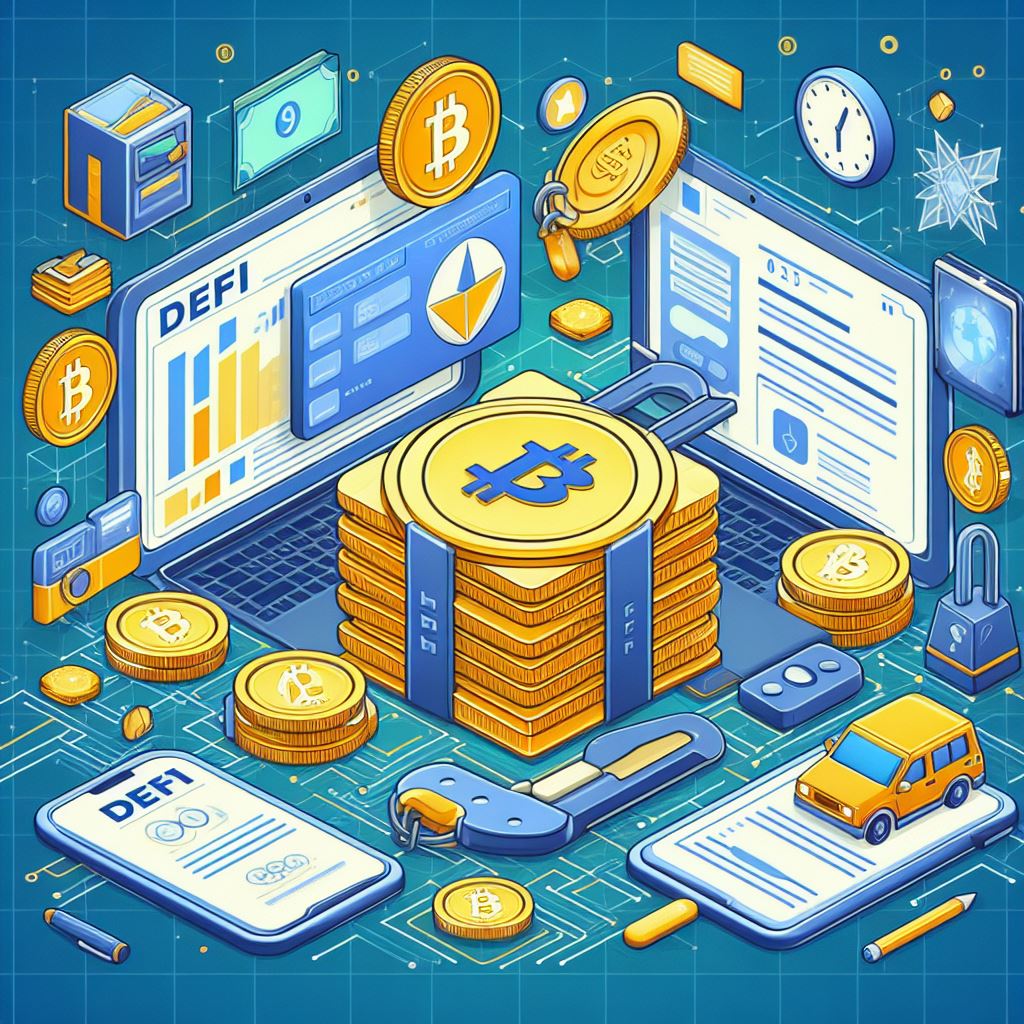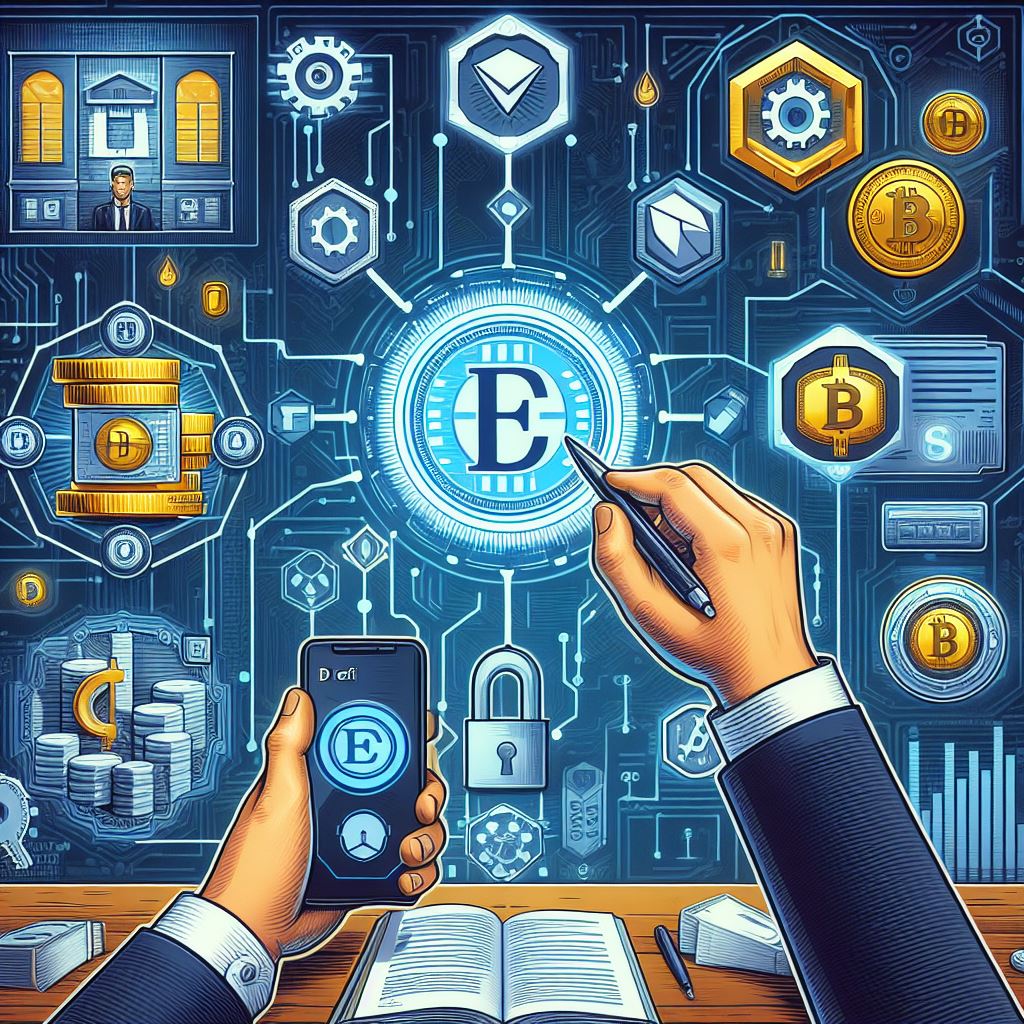Introduction
Traditional banking is a system that relies on centralized intermediaries, such as banks, brokers, and regulators, to facilitate and oversee financial transactions and services, such as lending, borrowing, saving, investing, and transferring money. Traditional banking is based on trust, authority, and regulation, which ensure the security, validity, and compliance of financial transactions and services. However, traditional banking also faces several challenges and limitations, such as high fees, low efficiency, lack of transparency, and exclusion of the unbanked and underbanked populations

Decentralized finance, or DeFi, is a new and emerging paradigm that aims to challenge and transform the traditional banking system, by leveraging the power of blockchain technology and smart contracts. Blockchain technology is a distributed ledger system that allows multiple parties to record and verify transactions without a central authority or intermediary. Smart contracts are self-executing agreements that can enforce the terms and conditions of the transactions without human intervention. DeFi is a collection of various applications and protocols that provide various financial services and products, such as lending, borrowing, saving, investing, and transferring money, in a decentralized, transparent, and permissionless manner.
Features and Benefits of DeFi
Defi offers several features and benefits that make it attractive and superior to traditional banking, such as:
Decentralization: DeFi eliminates the need for centralized intermediaries, such as banks, brokers, and regulators, and empowers the users to directly interact and transact with each other, without relying on trust, authority, or regulation. This reduces the cost, time, and complexity of the financial transactions and services, and improves the speed and scalability of the system.
- Transparency: DeFi enables the creation of a transparent and verifiable record of transactions, which can be accessed and audited by anyone in the network. This enhances the trust and accountability among the users and reduces the risk of fraud and corruption.
- Immutability: DeFi ensures that the transactions and the data recorded on the blockchain are immutable and irreversible, as any change would require the consensus of the majority of the nodes in the network, and would invalidate the hashes of the subsequent blocks. This preserves the integrity and the history of the transactions and the data and prevents the loss or manipulation of the information.
- Efficiency: DeFi leverages the power of smart contracts, which are self-executing agreements that can enforce the terms and conditions of the transactions, without the need for human intervention. This enhances the functionality and efficiency of financial transactions and services and enables the creation and delivery of innovative and customized products and solutions.
- Inclusion: DeFi provides access and affordability to financial transactions and services, without the need for identification, verification, or authorization. This enables the inclusion and empowerment of the unbanked and underbanked populations, who can participate and benefit from the financial system, without facing the barriers and constraints of the traditional banking system.
Challenges and Risks of DeFi
Defi also faces several challenges and risks that need to be addressed and overcome, such as:
- Scalability:

DeFi relies on blockchain technology, which has inherent limitations in terms of the throughput, latency, and capacity of the system. Blockchain technology can only process a limited number of transactions per second, and each transaction takes a certain amount of time to be confirmed and validated by the network. Moreover, blockchain technology requires a large amount of storage and computational power to maintain and update the ledger. These factors limit the scalability and performance of the DeFi system and pose challenges for its mass adoption and mainstream integration.
- Interoperability: DeFi consists of various applications and protocols that operate on different blockchains and platforms, which have different standards, features, and functionalities. This creates interoperability issues and challenges, as the applications and protocols may not be compatible or compatible with each other and may be unable to communicate or exchange data or value. Moreover, the applications and protocols may not be compatible or compatible with the traditional financial system, and may not be able to interact or integrate with the existing infrastructure and services
- Security:
DeFi depends on the security and validity of blockchain technology and smart contracts, which are subject to various technical and human errors and vulnerabilities. Blockchain technology can be compromised or attacked by malicious actors, who can exploit the weaknesses or bugs in the system, and disrupt or manipulate the transactions and the data. The smart contracts can also be compromised or attacked by malicious actors, who can exploit the flaws or loopholes in the code, and execute or prevent the transactions and the services. These factors expose the DeFi system and the users to various security risks and threats, such as hacking, theft, fraud, and loss

- Regulation: DeFi operates in a decentralized, transparent, and permissionless manner, which challenges and contradicts the existing legal and regulatory frameworks and norms of the traditional financial system. DeFi raises various legal and regulatory issues and uncertainties, such as the jurisdiction, liability, and enforcement of the transactions and the services, and the legal status and protection of the users and the assets. Moreover, Defi faces various legal and regulatory challenges and obstacles, such as compliance and alignment with the existing laws and regulations, and the recognition and acceptance by the authorities and the regulators
Opportunities and Threats of DeFi for Traditional Banking
Defi presents various opportunities and threats for traditional banking, which can be summarized as follows:
- Opportunities: DeFi offers various opportunities for traditional banking to improve and innovate its products and services, and to enhance its competitiveness and relevance in the financial sector and society. Traditional banking can leverage the advantages and benefits of DeFi, such as decentralization, transparency, immutability, and efficiency, and integrate them into its existing infrastructure and operations, to create a more open, inclusive, and sustainable financial system. Traditional banking can also collaborate and cooperate with the DeFi actors and initiatives, and establish and participate in various mechanisms and platforms for DeFi, to foster dialogue and partnership for the development and regulation of DeFi
- Threats: DeFi also poses various threats for traditional banking to lose and decline its market share and influence in the financial sector and society. DeFi challenges and disrupts the traditional banking system, by providing alternative and superior products and services, and by eliminating the need and dependence on centralized intermediaries, such as banks, brokers, and regulators. Defi also undermines and erodes the traditional banking system, by exploiting and exposing its weaknesses and limitations, such as high fees, low efficiency, lack of transparency, and exclusion of the unbanked and underbanked populations
Conclusion
DeFi is a new and emerging paradigm that aims to challenge and transform the traditional banking system, by leveraging the power of blockchain technology and smart contracts. DeFi offers various features and benefits, such as decentralization, transparency, immutability, efficiency, and inclusion, that make it attractive and superior to traditional banking. However, DeFi also faces various challenges and risks, such as scalability, interoperability, security, and regulation, that need to be addressed and overcome. DeFi presents various opportunities and threats for traditional banking, which can improve and innovate its products and services, or lose and decline its market share and influence. DeFi is a disruptive and revolutionary force that has the potential to reshape the financial sector and society and requires the collaboration and coordination of various stakeholders, such as governments, regulators, researchers, developers, and users, to advance and promote the development and regulation of DeFi.
